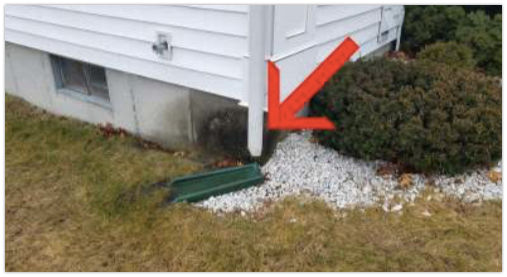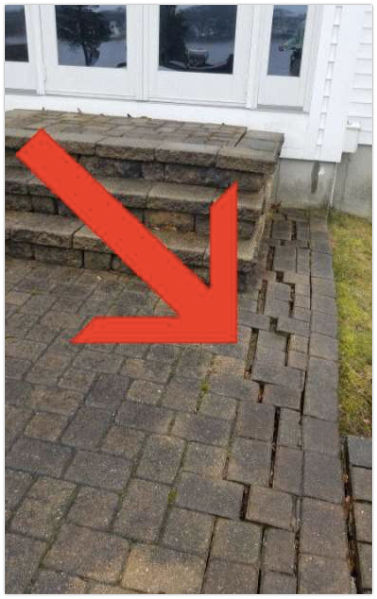You have 1 hour to tour a home; here is what you should look for
- May 15, 2020
- 6 min read
Updated: Nov 9, 2020

Dear home buyer,
We hope you are keeping safe. This is being written during a time when COVID-19 has surprised the world by its impact. When touring a home, please remember to take the proper precautions of keeping a distance from others and wearing a face mask and gloves.
Furthermore, this is written for the home buyer who has actively been reviewing homes online and is looking to purchase soon. This can be applied to all types of homes. However, for condominiums, please keep mind that many of the exterior elements of the home (roofing, siding, etc.) are commonly owned by all owners in the building also know as the homeowner's association.
At every level of your home search, there is diligence you should do to give yourself the confidence to move forward with a specific home or move on to the next. Often, however, time can be tight, especially if it’s a highly sought after or “hot” home. You may need to make decisions quickly on whether or not to move forward with an offer and at what price. If that’s the case, you’ll want to make the most of your home tour and treat it more than a simple walkthrough. It should be a mini inspection.
After all, this could be one of the biggest investments of your life.
Along with your Nuhom Tour Agent, feel free to become your own version of Sherlock Holmes! You may get awkward looks from others, but who cares? Believe us, its well worth it. All of your findings can impact your offer decision-making. Our Nuhom Tour agent will provide oversight with the home tour, but its best to be self-prepared and have these tools in your hands. Here is how to prepare and make the most of your home tour.
Recommended items are:
a phone,
a measuring tape,
a 5-foot long stick or pole,
a camera or 360 camera,
a marble, and
binoculars – always a plus.
Feel free to embrace your inner Sherlock “Homes”!
Estimated time for your tour:
20 minutes to discuss if the home meets your personal needs with your agent
40 minutes for your mini inspection
Below are the top 7 categories to investigate during your mini inspection.
Foundation and Basement
Roof and Gutters
Exteriors and Grounds
Heating System, HVAC, Water Heaters
Plumbing
Windows
Room Sizing
These often are the most cost and risk prohibitive items to consider.
Remember to take photos of everything. Keep in mind, no one, including a home inspector, can see through walls. The goal of your mini inspection is to get a reasonable understanding of the condition of the home and what extra efforts may be involved if you decide to purchase it. The below will add a pep in your home tour step:
1) Foundation and Basement
A weak foundation and water in the basement can be a nightmare.
a. Do you see water stains on the basement floor or the foundation walls? Or sitting water (a pool of water on the basement floor)?
b. Do you smell or see mold (mold looks like grey or black specs on and smells musty and damp)?
c. Using the 5-foot long stick or pole, poke the (wood, stone, concrete, etc) foundation. Do you find signs of weakness or cracking?
d. When you walk the exterior of the property, do you see or can you feel any weakness or cracking after poking the exterior wall?
e. Are the interior floors generally level? Feel free to use a marble to roll on the floor or slide your hand or foot across the floor to get a sense of this.
Disclaimer: Try not to damage any walls when poking around! The seller would not be happy.
2) Roof and Gutters
Shingles flying off the roof or poor flashing* lead to leaks, and gutters without proper downspouts lead to foundation damage.
*Flashing - the material or binding where the roof and vertical objects meet such as a chimney or dormer.
a. Using your binoculars or with the naked eye, look for missing shingles or cracks. Feel free to walk away from the property to get a good vantage point.
b. Consider the age of the roof, are shingles cracking? Often it’s helpful to look at neighboring properties and their roof as a reference point.
c. Do you see any stains on the ceilings or in the attic? Do you smell or see mold?
d. Are all the gutters intact? Do all the gutters seem to stream water downwards away from the property?
e. If visible, look along the chimney to see if you can spot watermarks. If so, water could be or have been trickling down from the roof at some point.

Gutters should properly stream water AWAY from the property and its foundation.
3) Exteriors and Grounds
Rotting decks or poorly constructed porches along with patios eventually need to be replaced and can be unsafe.
a. Are the exterior decks or porches level? Are joists (timber supporting the structure) rotting? Do decks seem weak or flimsy? Are stoops cracking?
b. Do patios and patio tiling seem intact?
c. Are any of the walkways or steps crumbling?
d. Is the home siding all intact or is some siding missing?

Patio tiling should not be loose as it is a tripping hazard.

Siding deterioration can cause water to reach the frame of the property.
4) Heating System, HVAC, Water Heater
These are important systems ensure safety and comfort in the home. Feel free to turn them on to see if they work.
a. Does the heating system work? Try turning up the thermostat(s) and test it. You can turn this on when you arrive so you give the system some time to get fully up and running.
b. Does the hot water work? Try running hot water in the bathrooms and kitchen.
c. Does the cooling system work? Similar to the heating system, do a quick test.
d. Where accessible, check each of these systems for age, any corrosion around pipes, or poor ventilation.

Corrosion at the water heater can lead to gas leaks.
5) Plumbing
While some may think most plumbing is behind walls, much of this is actually quite accessible.
a. Run all of the water-based appliances – garbage disposal, dishwasher, and washing machine. Do you see any leaks or water actively dripping? Do they all work?
b. Flush toilets and run water at the sinks. Do you see any leaks or water actively dripping underneath?
6) Windows
These are a key insulations ensuring heat or air-conditioning stays inside the home. You don’t want inefficient utility bills.
a. Open and close all the windows.
b. Are the windows double pane? Double pane windows provide good insulation.
c. Are the windows made of wood? If so, are they rotting at all?
d. Are the window screens installed or are they available as part of the home purchase?
7) Room Sizing
From time to time, the home listing noted living square footage may differ from the actual living square footage. This could impact your pricing judgement.
a. It’s best to double check some of the room sizes on your own, especially the bigger ones. While you're at it, get a sense for the height of the rooms.
Other areas to investigate, if time permits:
Check the lights by turning them on/off
Check the doors - do they properly shut?
Identify available parking spaces
Walk the perimeter of the property and check the condition of any fencing
A key theme throughout the above is water and its detection. Water is a major enemy of a home as it constantly finds ways to enter. Like most things, homes deteriorate over time unless up kept, but water accelerates that deterioration. The above are all investigations you can make on your own and are typically allowed during a home tour. Don’t feel shy and feel free to take as much time as you need. Again, this could be one of the largest investments of your life.
Please keep in mind, the above list is NOT to replace a full home inspection, but to help you gain comfort when you have limited time between seeing a home and deciding to make an offer.
Your findings may help you create negotiating points and/or confidence in your thinking. If the seller’s agent is present, we suggest asking about the age of appliances, roof, and systems if not already mentioned in the home’s listing. And don't forget your Nuhom Tour Agent will also assist in providing oversight, guidance, and document findings during the home tour.
Remember, embrace your inner Sherlock "Homes"!
Nuhom is a Boston based full-service real estate tech company making home buying convenient, fast, and rewarding. We have dismantled the traditional home buying process and replaced it with innovative technology, far fewer hurdles, and more savings for the modern home buyer. Learn more at www.nuhom.co
Comments